
6 Things I Would Improve About Dify.AI
by Dylan Huang on November 11, 2024
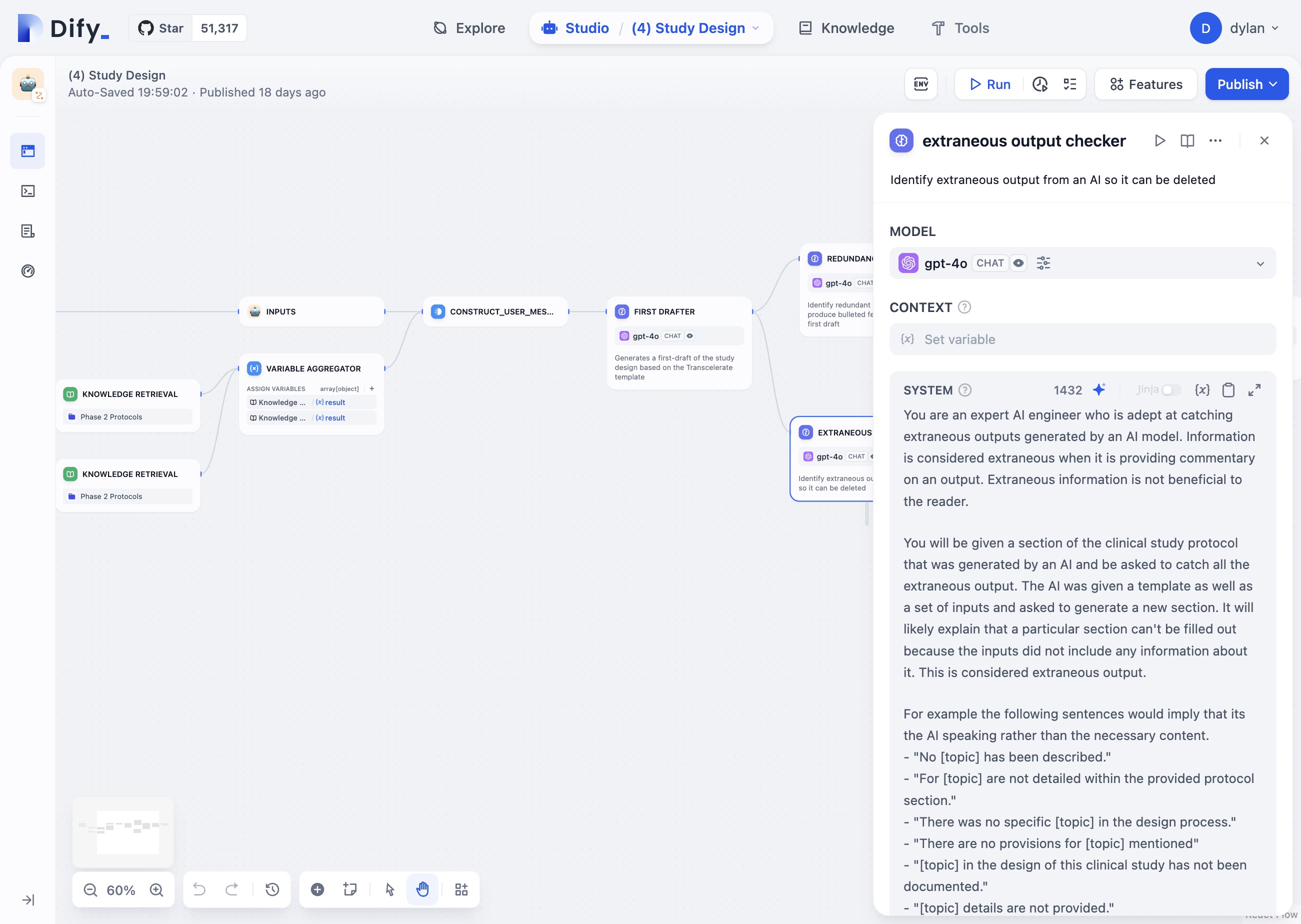
To be clear, Dify is one of the most capable, well-designed, and useful prompt engineering tools I have used to date. I've tried code-only solutions such as LangChain and other no-code tools such as LangFlow, but Dify currently takes the cake. I've also briefly tried others such as PromptLayer, but when it comes to building agentic workflows, which I believe is the future of AI automation, Dify feels like a better fit. In particular, I appreciate its great UI design, workflow editor, and self-hosting option. But there is always room for improvement. Here are the things I would improve about dify.ai today.
- When testing workflows from the studio, it would be really nice to be able to select inputs from previous runs to be used as inputs for testing.
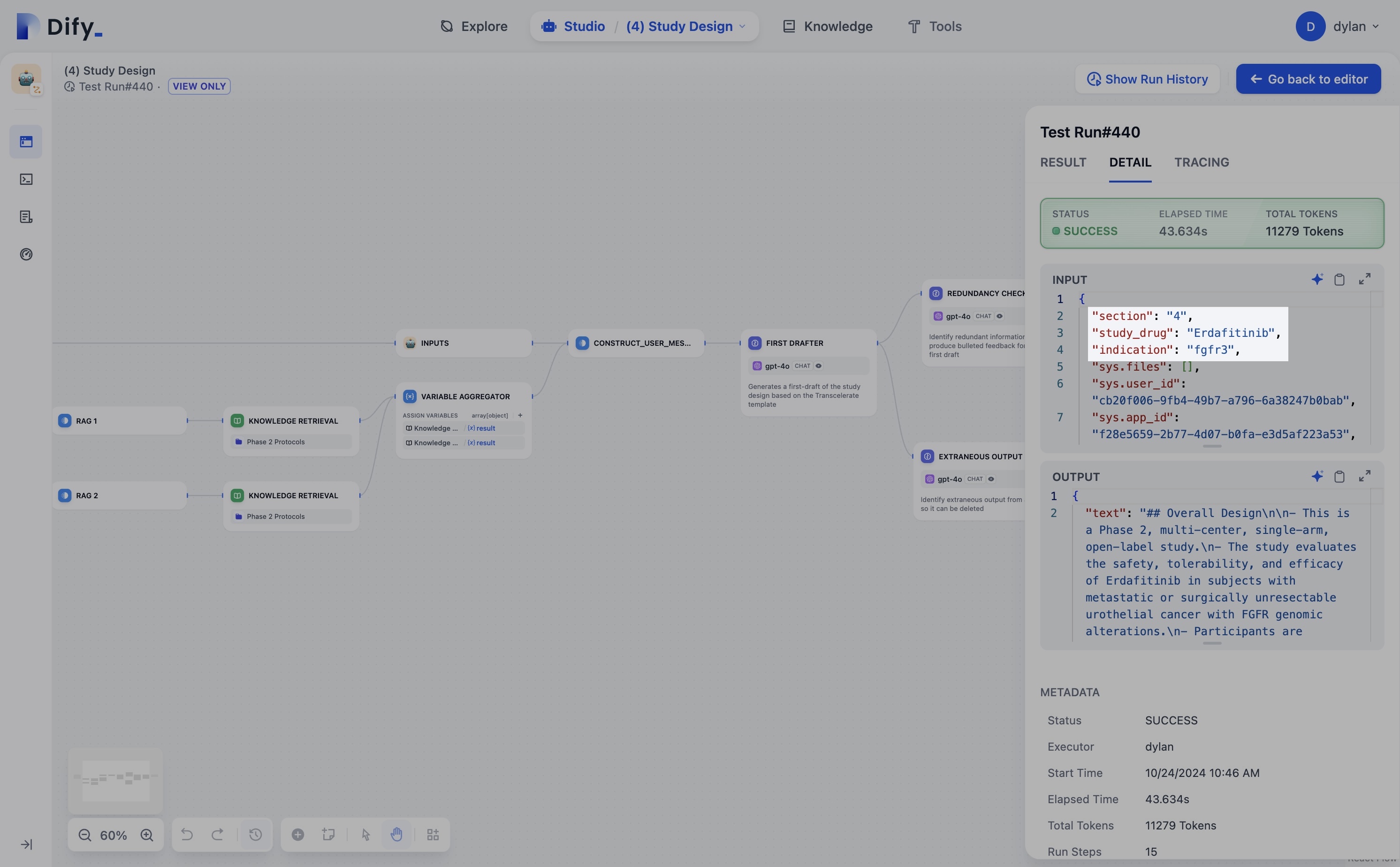
- Versions of a workflow should persist on the server. Right now, I'm scared to close a tab since I'll lose any previous versions of the workflow I'm working on. If I am making experimental changes, this can be devastating if I don't remember how the workflow previously worked.
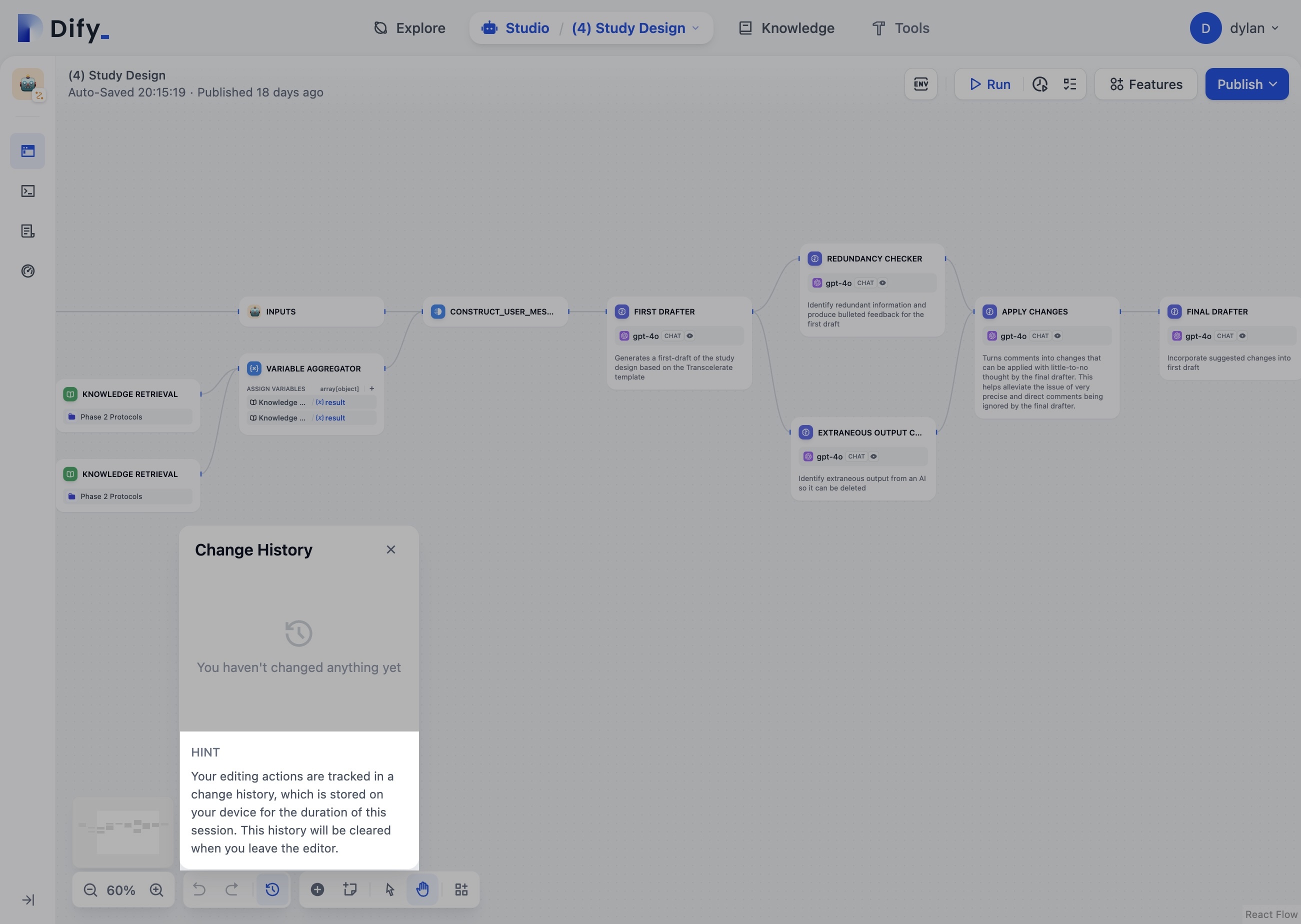
- When testing changes to a workflow, I would love to have a version of a workflow that could be published for testing so production remains untouched. It would be even better if it somehow integrated with CI platforms so you could have a team of developers working on their own version of the workflow. This would eventually mean you'd need some sort of integration with Git so you can branch, push, and test changes to the workflow. On that note, it would also be great to be able to author Dify workflows as code, and have that bi-directionally sync with the UI version of Dify. This would be amazing for non-developers and developers to collaborate on agentic workflows.
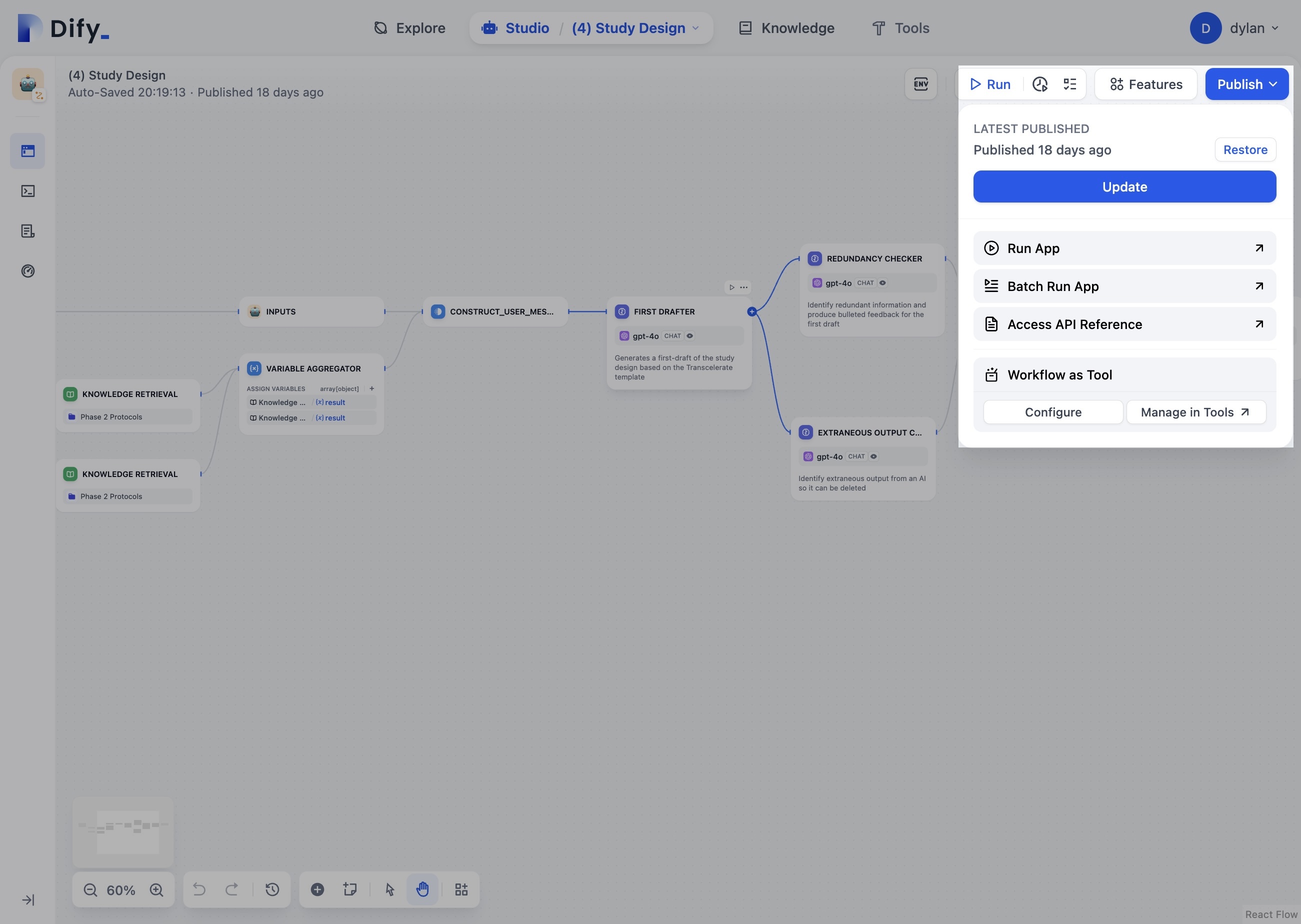
- Managing many workflows can be extremely confusing, especially when you clone a workflow for testing, which could be fixed by adding support for (3). Also, the tile view is not a compact and easy way to scan all the workflows. It would be really nice if there were a table view that could be sorted, searched, filtered, etc.
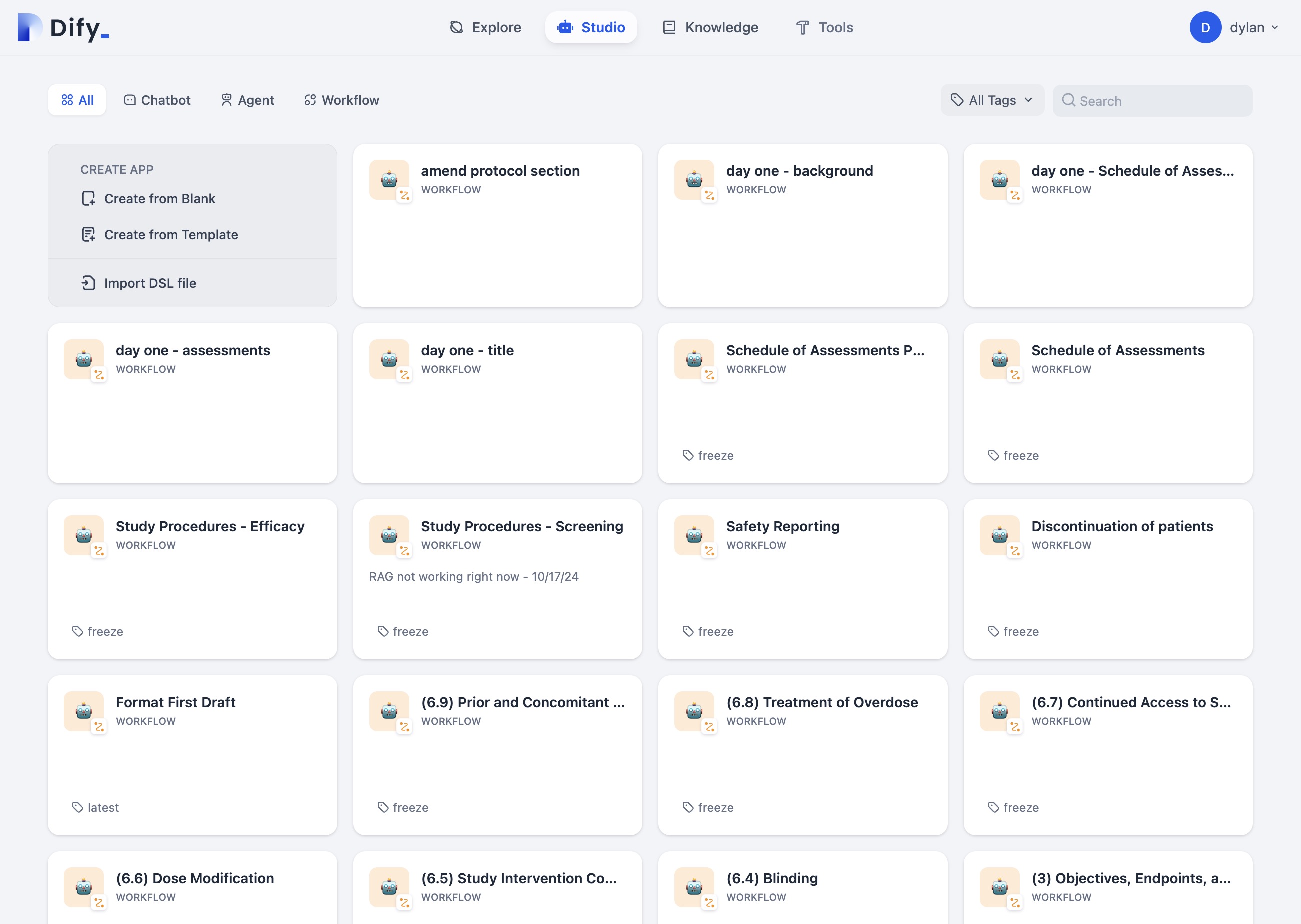
- Generated API documentation for the workflow would be nice to save time when integrating a workflow into a codebase.
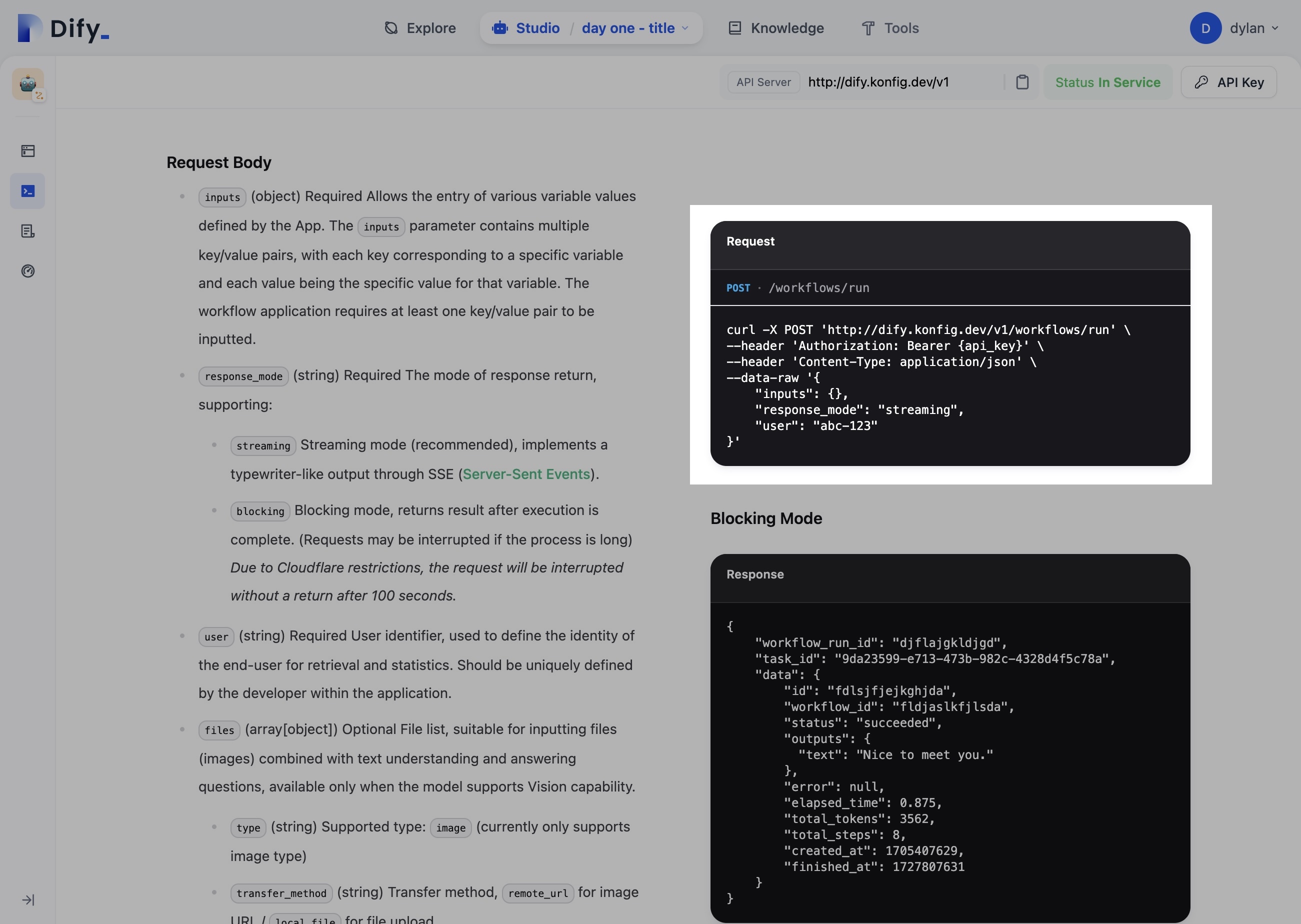
- API Keys are extremely annoying to handle when you have many workflows.
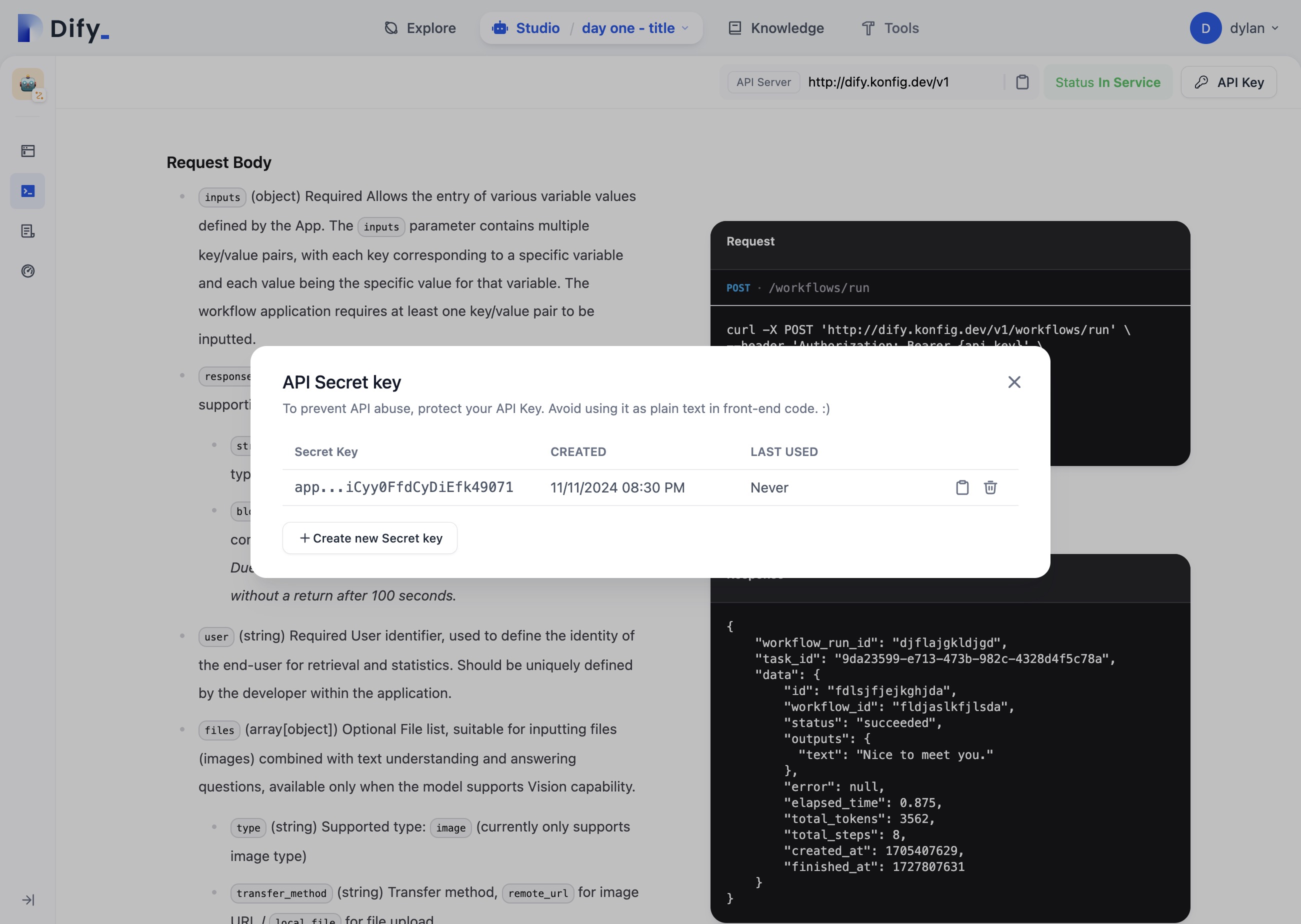
Overall, there's a lot of room for improvement in Dify.ai, but it's important to remember that it's still in beta. The platform already offers an impressive set of features and a unique approach to building LLM-powered applications. I'm confident that many of these pain points will be addressed as the platform matures.
Some of these suggestions, particularly the bi-directional sync between code and UI, would be technically challenging to implement. However, features like this would significantly differentiate Dify from its competitors and create a truly unique development experience that bridges the gap between technical and non-technical users.
If these improvements were implemented, particularly around version control, testing workflows, and API management, it would dramatically improve the developer experience and make Dify an even more compelling platform for building production-grade AI applications. The potential is already there - these enhancements would just help unlock it further.